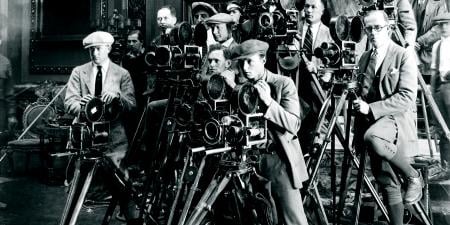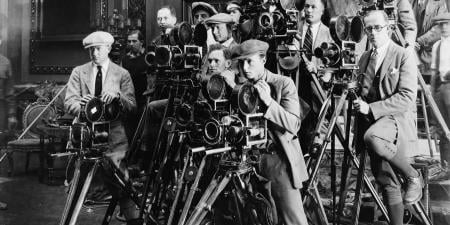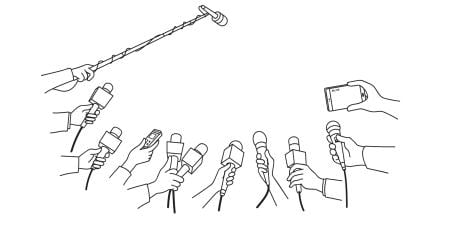I have been blessed to have had 2 rewarding careers—family physician and member of the US Congress—that I truly love and enjoy. Most importantly they are jobs where I have had the opportunity to make a real difference in people’s lives and well-being.
I practiced medicine on my home island of St Croix for 21 years. Although my original intention when I began residency was to go into adolescent medicine, I had a family practice instead, in the full sense of the phrase. About a third of my patients were seniors.
I also had the privilege of serving as a community health physician and emergency room doctor, and as director of maternity, child health, and family planning and a community health center, as well as being a hospital medical director and assistant (for a while, acting) Commissioner of Health, all while continuing my primary practice.
During that time I was also active in community affairs and the Democratic Party. I served as a high school PTA president, an elected school board member, and as Democratic National Committeewoman for 12 years. So prior to coming to Congress, although I never served in an elected legislative body, I would say I led a life which balanced medicine and politics.
Nevertheless, the decision to leave my practice was a difficult one. There is no way for a solo practitioner like I was to serve in the House of Representatives and continue to see patients from so far away as Washington. The rules of the House do not allow it in any case.
My elderly patients were of special concern to me, so when they said, “Dr. Green (my name then), you have served us well for all these years, if this is something you feel you have to do, we will support you.” So they released me to make the decision to run for the office I now hold. My pledge to them was that, if elected, I would continue to look out for the needs of all of my patients and that of my entire community from this broader platform.
I was first elected in 1996, after losing a previous bid for this office 2 years earlier. As the representative from the US Virgin Islands, I am a nonvoting delegate to Congress, which means that while I have a vote in committee and all other privileges afforded members, I cannot vote on the floor of the House. Being a physician and the first woman physician to have served in the Congress were key for me, providing visibility and a voice on issues of national concern. Particularly instrumental was being appointed to lead the Health Braintrust of the Congressional Black Caucus (CBC), whose goal it is to eliminate disparities in health and health care for African Americans and other people of color. It is through this influential post that I have been able to take my practice to the larger national office and also help address the social and economic determinants of health that were as much a part of my practice in St Croix as were disease and illness.
Beyond bringing my medical experience and knowledge to Capitol Hill, I feel that I have also brought some of the art and the ethics of the practice of medicine to the process and approach to legislating and shaping policy.
The skills honed through the diagnostic process help me to get to the heart of an issue. My scientific background and the practice of evidenced-based medicine have enabled me to apply the same principles to deciding my positions on a given issue—not just in health but on every bill or policy before us. It is most disconcerting to observe that far too often legislation and policy are set in direct conflict with what science has informed.
As a family doctor, I learned how to listen to my patients and to hear what they were saying and what they were not. Sometimes, I wonder if my colleagues listen at all.
My public health background has taught me the principle of prevention—especially primary prevention—which can be applied to almost all health problems we can think of.
During my 21 years as a physician I have been sensitized to the issues that affect the well-being of people, and it is that sensitivity, more than politics or my own personal ideology, that becomes the yardstick by which I measure what I do.
On such issues as affordable drugs, universal coverage, health disparities, global health, stem cell research, needle exchange, and many others I do not have trouble deciding which side I must support—the ethics of medicine and the imperative to do no harm and to respect, preserve, and protect life remain my guide.
I am proud that, as a member of Congress, I have been able to be at the forefront of groundbreaking legislation in minority health. The Minority AIDS Initiative was the first funding designed to build the capacity of the frontline minority community health and faith-based organizations to address the HIV/AIDS epidemic.
In 1999, my CBC colleagues and I were able to make a direct appeal to the Advisory Committee on Immunization Practices which advises the Centers for Disease Control to recommend the extended use of vaccines in children aged 2 to 5, a critical age for minority children. It has been proven to have made a dramatic difference in their health.
Another accomplishment of which I am proud is my association with the creation of the National Center on Minority Health and Health Disparities in the National Institutes of Health which is important to the support and coordination of minority health research.
In order to address minority health disparities, the Tri-Caucus, (the CBC, the Hispanic Caucus and the Asian Pacific Islander Caucus) with support from the Democratic leadership has introduced the Health Care Equality and Accountability Act of 2005. It addresses improving access to health care, ensuring culturally competent care, and encouraging minorities to enter the health professions.
It is not my intention to remain a member of Congress for life. At some point, I plan to return to some aspect of public health. I do manage to get a few continuing medical education credits every year, but medicine has changed so much that to go back into practice would require at least an intense refresher course.
Finally, I am very distressed by the disregard for physicians and our training, skill, and art and the low esteem and value placed on what we do. We have become a low-paid pawn in the corporate profit-driven, rather than care-driven, system. I hope I can play a part in changing that, but making that happen will require all of us to become more politically savvy and active.
I have much concern for the future health of our nation, and I hope that my medical colleagues who have the same skills I have brought to politics will use them to influence and help shape that future. No one group has more to bring to that debate. No one group can do it better.



